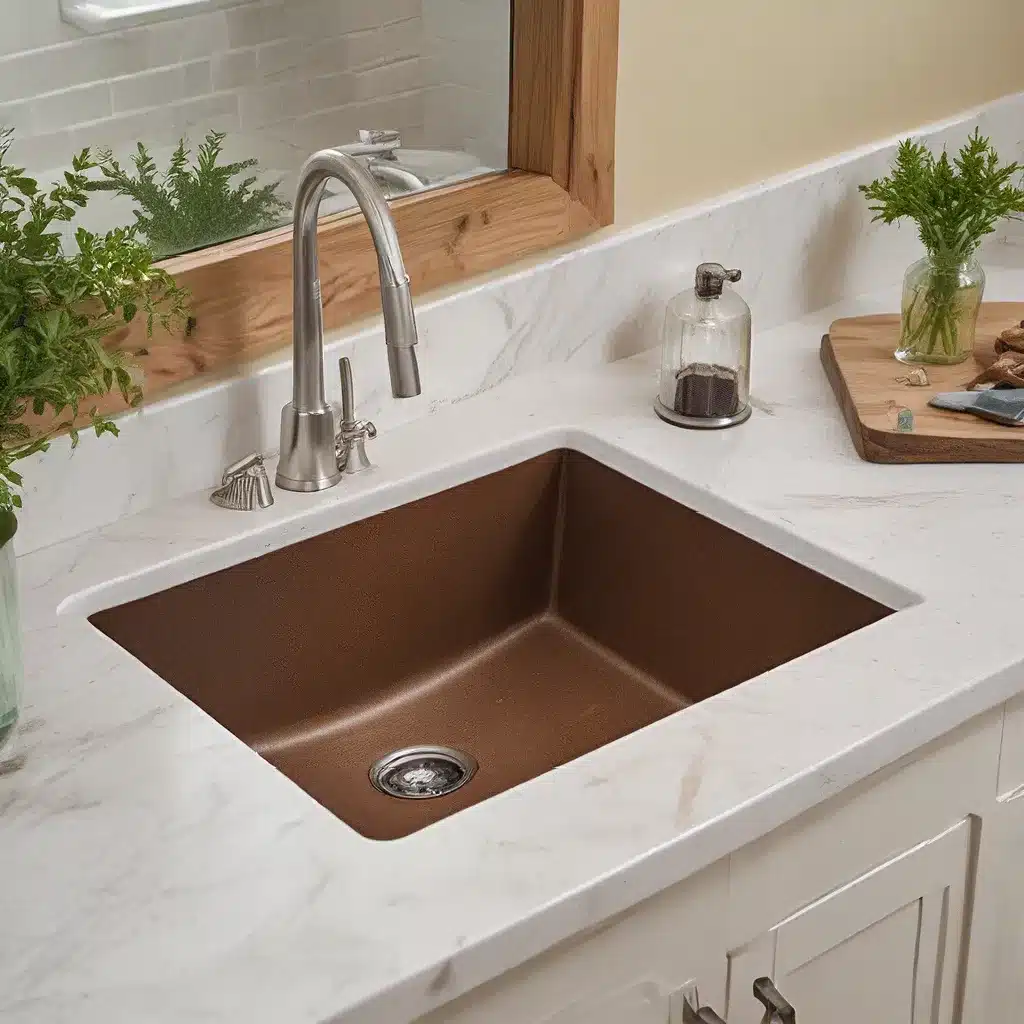
In today’s world, where environmental consciousness is becoming increasingly crucial, the choices we make in our homes can have a significant impact on the planet. When it comes to bathroom fixtures, the humble washbasin is an area where we can make a difference. Sustainable sinks are not only visually appealing but also offer a more eco-friendly alternative to traditional options.
Embracing Eco-Friendly Materials
The materials used in the construction of washbasins play a vital role in their sustainability. Washbasin Factory offers a range of eco-friendly options that cater to the needs of the environmentally conscious consumer.
Fireclay sinks, for instance, are a popular choice among those seeking a sustainable solution. Crafted from 100% white clay and thickly glazed, these sinks are not only durable and long-lasting but also lead-free and recyclable. The manufacturing process is carried out in environmentally conscious facilities, further emphasizing their commitment to sustainability.
Another innovative material is NativeStone, a combination of natural jute fiber and cement that results in an extraordinarily strong and lightweight sink. These sinks, offered by brands like Native Trails, have received the prestigious GOOD DESIGN award for their innovative design and sustainable approach.
Recycled copper is also gaining traction as an eco-friendly option. Used in sinks like the Farmhouse 30 from Native Trails, recycled copper not only adds a unique visual appeal but also inherits antimicrobial properties that make it a practical choice for the bathroom.
Exploring Diverse Design Options
Sustainability does not have to come at the expense of aesthetics. The market for eco-friendly washbasins offers a diverse range of designs to suit any bathroom style.
For those seeking a contemporary look, the Alfi brand’s fireclay sinks with a black matte finish provide a sleek and modern aesthetic. Alternatively, the Ruvati Roma WORKstation kitchen sink offers a transitional design, incorporating stainless steel, Sapele wood, and a foldable silicone drying rack for a multifunctional and environmentally conscious solution.
The farmhouse trend remains popular, and sustainable options like the Ruvati Fiamma sink, with its reversible smooth or fluted apron, cater to this style. For a touch of glamour, the Ruvati stainless steel farmhouse sink with a colored finish using a non-toxic nano-PVD technique can transform the everyday into a sophisticated statement piece.
Maximizing Water Efficiency
Water conservation is a crucial aspect of sustainability, and eco-friendly washbasins can play a significant role in reducing water consumption. Kohler, for example, has a Believing In Better philosophy that drives their commitment to reducing water usage and greenhouse gas emissions.
The Kohler Riverby sink, with its sloped base and custom-fit accessories like a colander and utility rack, not only looks elegant but also minimizes water pooling and promotes efficient cleaning. The Kohler Strive sink, with its two equally sized bowls, allows users to keep clean and dirty dishes separate, further reducing water usage.
Installation and Maintenance Considerations
Proper installation and maintenance are essential for the longevity and performance of sustainable washbasins. Undermount installation, as seen in the Kohler Prolific sink, ensures a neat and tidy countertop while also providing easy access to the sink’s accessories and functionality.
When it comes to maintenance, the durability of materials like fireclay and recycled copper is a significant advantage. These sinks are resistant to chipping, cracking, and burning, ensuring their long-term beauty and reliable performance. Additionally, sound absorption features, such as those found in the Kohler Strive sink, can help reduce dishwashing and disposal noise, contributing to a more peaceful and enjoyable bathroom experience.
Conclusion
As the demand for sustainable living continues to grow, the washbasin market has responded with a wide range of eco-friendly options. From innovative materials to diverse design choices, these sustainable sinks offer homeowners, interior designers, and contractors an opportunity to make a positive impact on the environment while enhancing the aesthetic and functionality of their bathrooms.
By considering factors such as material composition, water efficiency, installation, and maintenance, homeowners can make informed decisions that align with their environmental values and design preferences. With the wealth of sustainable washbasin options available, creating a beautiful and environmentally conscious bathroom has never been easier.

